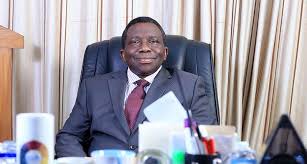By Haruna Gimba
The Federal Government of Nigeria and the Global Financing Facility (GFF) has announced that the GFF, a multi stakeholder partnership, was investing $20 million to improve and strengthen primary health care starting in three states, with the aim of reaching the poorest and most underserved throughout the country.
Nigeria is linking this investment financing to about $150 million equivalent per year from its budget, implemented as part of the Basic Healthcare Provision Fund (BHCPF) of the National Health Act.
The quantum of resources and prioritization of services will contribute to sustainably financing the health and nutrition needs of women, children and adolescents.
According to a statement issued in Washington DC, the Nigerian government is committed to ensuring that all Nigerians, particularly the women, children and adolescents facing some of the most challenging circumstances, in the most challenging places, have access to the basic health and nutrition services that they need, without becoming poorer by paying for them.
The Global Financing Facility has created a new sense of awareness that we must put our money on the table for these essential investments in our people, and use them in even smarter ways and that is something that hasn’t been done before,” Nigeria’s Minister of Health Professor Isaac Adewole said.
Nigeria, the most populous country in Africa, faces big challenges: Nigeria is the single largest contributor to the global annual number of maternal deaths; infant and child mortality rates are high and unchanging; total fertility rates have remained stubbornly high; nutrition outcomes in children have worsened; and child immunization rates are low, especially among the poorest children.
Through the BHCPF the Nigerian Government is expanding its fiscal space for health to the tune of $150million or N55.1 billion for primary health care strengthening and service delivery.
The grant from the GFF will co-finance early implementation of the BHCPF with funds mobilized from the government and other contributors, starting in three states: Abia, Niger, and Osun. Following this start-up phase, the government will provide most of the financing for the scale-up to the remaining 33 states and the Federal Capital Territory.
“The Government of Nigeria will make an enormous difference in the lives of millions of Nigerians by making a lasting investment in the health and nutrition of women, children and adolescents, the foundation of society and the economy,” said Mariam Claeson, Director of the Global Financing Facility.
“Nigeria’s commitment to sustainably financing health and nutrition is a beacon for other countries, as they work closely with the Global Financing Facility to make sure that the investments they make today last for years to come.”
With today’s announcement, the GFF is investing a total of $47 million in Nigeria, linked to $350 million in funding from the International Development Association, the World Bank’s fund for the poorest countries, which has focused on scaling up health services in North East Nigeria.
“Together, the Government of Nigeria, with the support of the Global Financing Facility, the World Bank, and other partners, are catalyzing real change for the people of Nigeria,” said Rachid Benmessaoud, World Bank Country Manager for Nigeria.
“This investment in human capital will pay dividends in lives saved and improved, and help build a stronger, more prosperous economy.”





